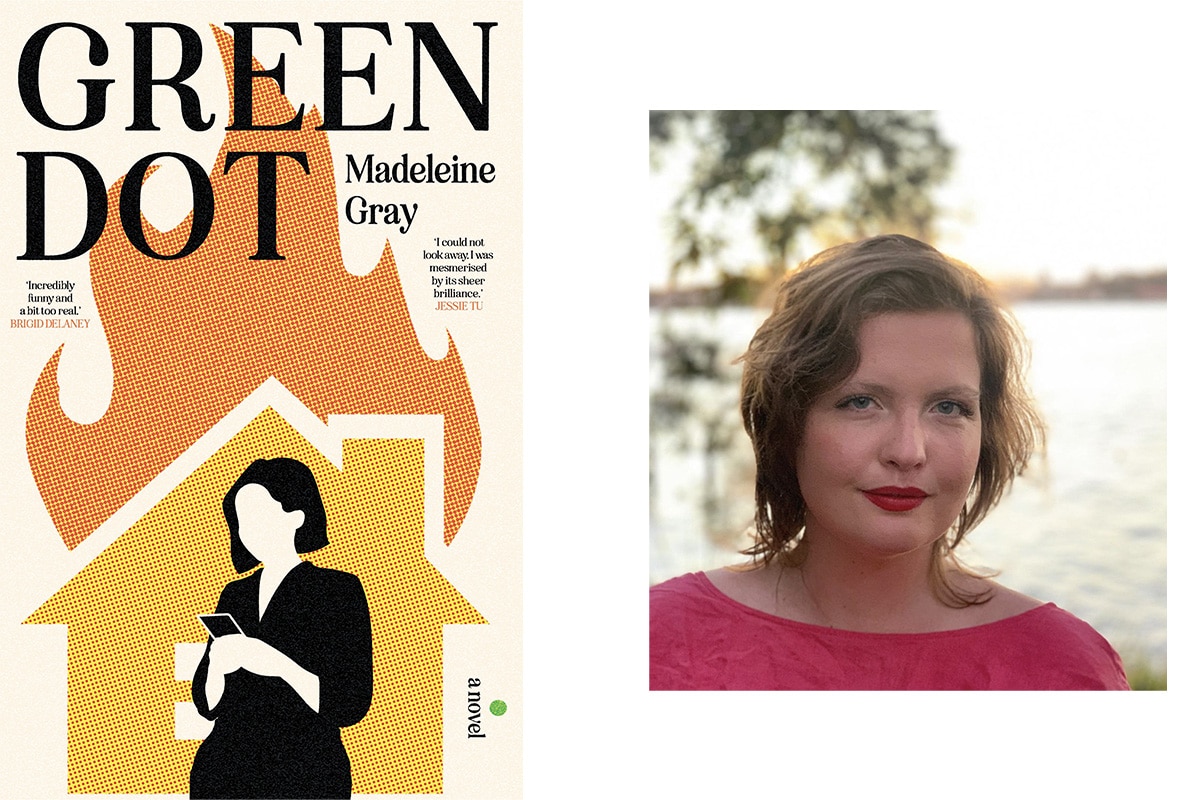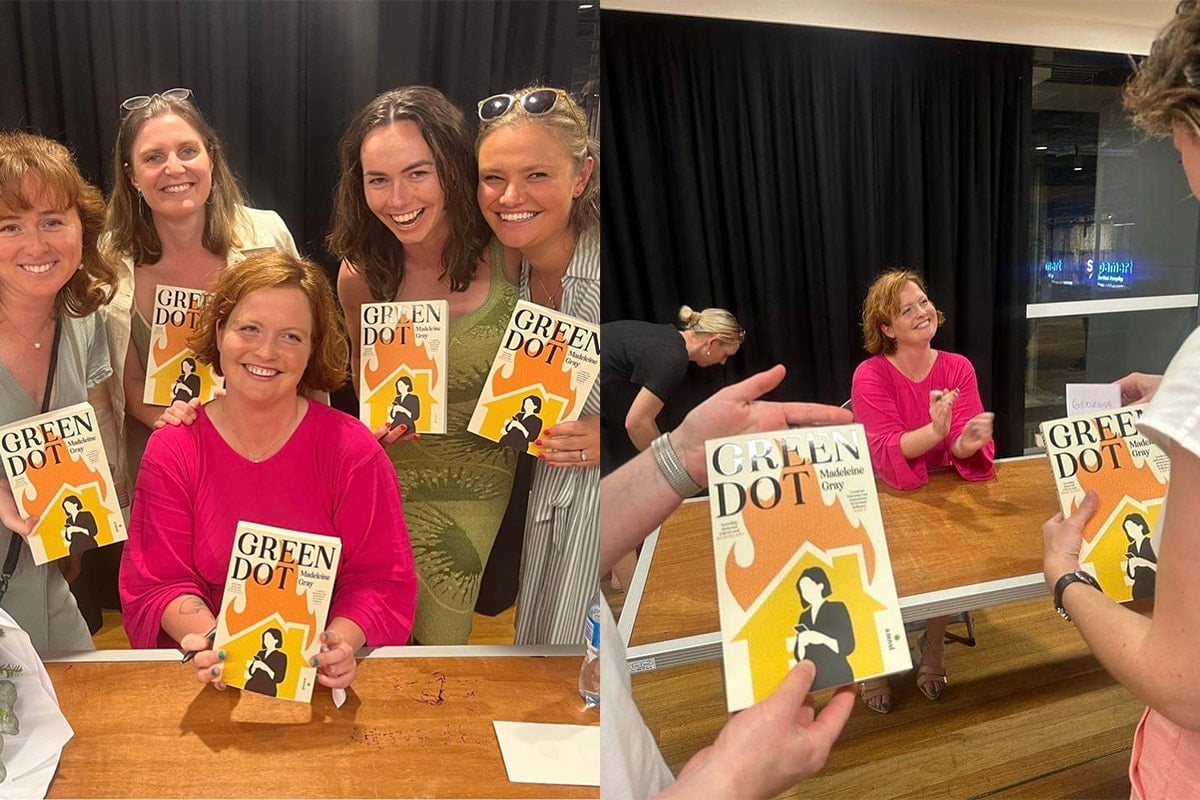
I don't think it's premature to say Madeleine Gray has written the novel of the summer. The film rights for her debut, Green Dot, were snapped up by British production company, Drama Republic, before physical copies had landed on the shelves.
On first glance, Green Dot's protagonist is exactly the kind of solipsistic 20-something that has dominated popular fiction these past few years. Named after the Greek goddess of marriage, love, women and family, Hera is a 24-year-old bisexual woman living with her dad in Sydney. While all her friends are kickstarting careers, she's languishing as an underpaid online comment moderator. There's an affair with an older married man. And yet.
"I've been pretty obsessed with intergenerational affair novels for a long time," says Gray, as we sit under the dappled shade of a tree. She cites Luster by Raven Leilani and Asymmetry by Lisa Halliday. First of all, the power dynamics are fascinating but then there's also the element of agency. "Why would someone like Hera, a queer young white woman, who ostensibly could pick any path in the world choose a boring old straight guy?"
"What are the kind of normative pulls that still try and get us even though we know that they're a bad idea?"
Green Dot weighs up this question and, by doing so, is a masterwork in all the selves; oscillating fluidly between self-awareness and self-delusion, and always a whisper away from self-diagnosis. It's intentionally navel-gazing – how could it not be when the condition of being a millennial means always having your own face reflected back at you while you pain over the green dot, that hypnotic, breathing, sign of life on the internet?
What Green Dot gets at is that it's easy to sleepwalk into an all-consuming relationship, for your body to go slack in the tide. What's much harder is to choose, and then build, a life from your own vision. "I saw him as a circuit breaker; something that could put my big, unmeetable desires on pause."

While Gray was adamant on writing a devastating affair novel, it was important for the book to be funny. "I don't really like to read anything that isn't funny." This was necessary, in part, since Gray wrote Green Dot during a universal low moment. She was living alone under lockdown, the Inner West bookshop she worked at was unionising, and she was deep in the weeds of her PhD on autobiographical women's literary theory, which she is completing remotely from The University of Manchester. "I really wrote to just giggle at myself as a little companion."
And so, between all the existential observations on love, work, shame, and goodness, humour floods through Green Dot. Its thorniest moments are alleviated by the absurdities that come with being sad: sushi without soy sauce, your married lover naming his newborn Maisie, not knowing you suggested it as a facetious reference to Henry James. The rest of the joy is uncomplicated, as simple as bottles of cheap rosé shared with friends on a balcony to the soundtrack of Caroline Polachek or the ritual of jar pasta sauce and cheap ravioli eaten with your dad.
Before she wrote Green Dot, Gray had established herself as an academic and art critic. Her Oxford Master's thesis was somewhat inspired by Sally Rooney. "I'm such a normie for saying this," she prefaces, "but I was really hungover one day and went to the bookshop and picked up Conversations with Friends and I read it in a day. Then I was reading all these books around that had queer protagonists who were dissatisfied with late stage capitalism – which I know sounds boring now, but at the time that was a fresh idea." Through her research, Gray also explores the way contemporary feminism has been co-opted by white women to carry out their own aims.
Gray's Master's thesis, compounded with her arts criticism and the research for her PhD meant that in a way, the author was "preparing for this book for a long time".
"I just wanted to use all of those ideas through the voice of a protagonist who is weird and funny and strange."
Now, Green Dot has been picked up by publishers in the UK and the US, which put Gray in the rare position of getting to select who the book was published with. (The author tells me a deciding factor for the book's home in the US was how favourably they felt about the word "cunt".)
"I'm very well aware that this is not the normal journey. I worked in a bookstore for a long time. I know how hard it is to be a debut author and books that are so good just fall away into obscurity. Obviously nobody likes the 'I feel so grateful line' but I do feel very grateful."
As for what's next? Well the author is tossing up two ideas. Either way, she promises the next book is going to be "a lot gayer". If there's one thing Gray knows how to do, it's threaten us with a good time.
Images: @madeleine_gray_



